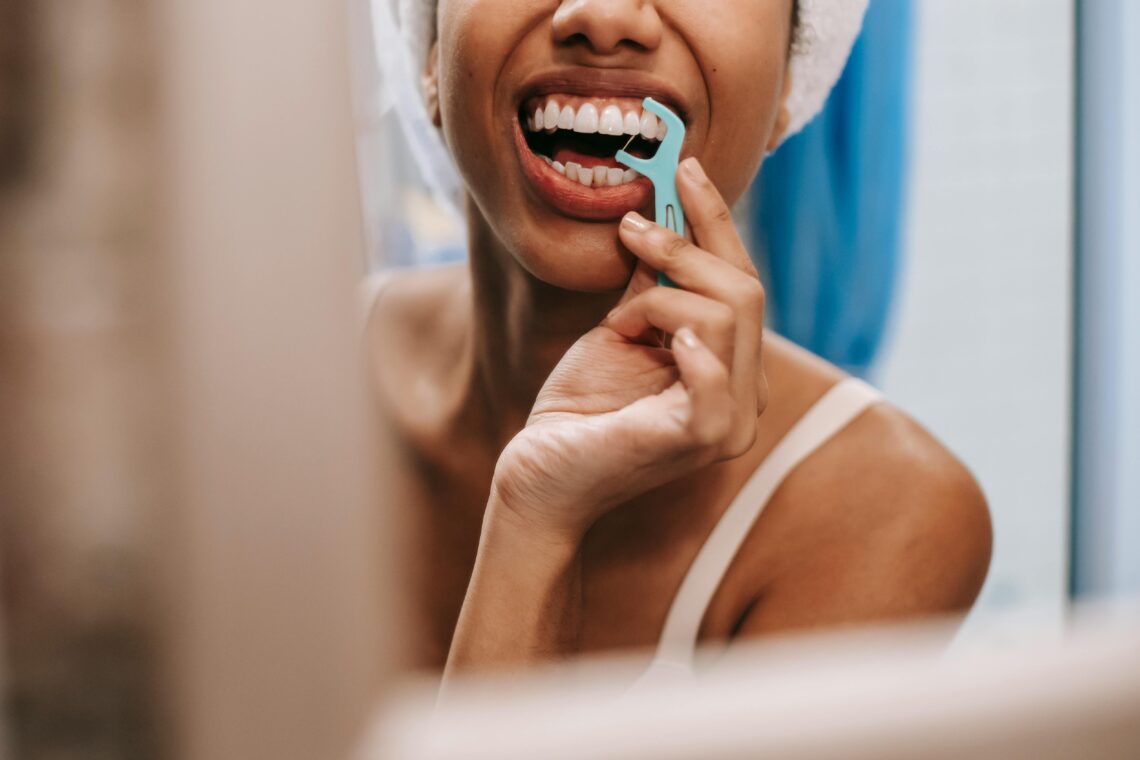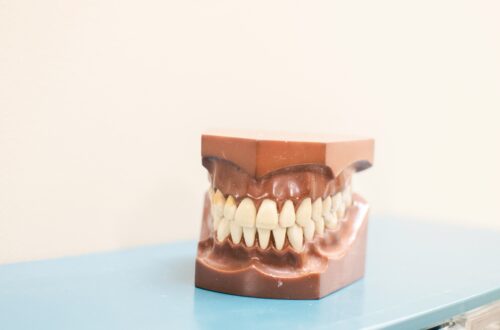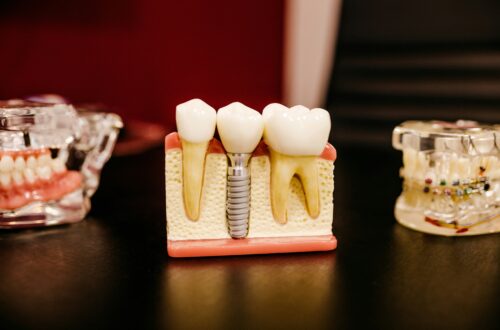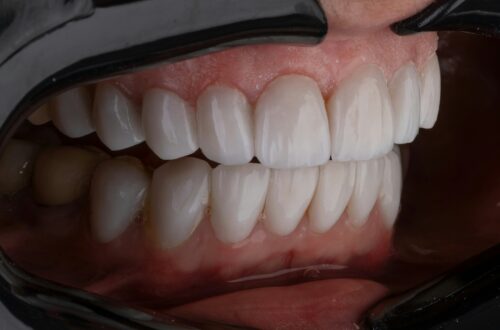Affiliate Disclaimer:
Some of the links on this website are affiliate links, which means that if you click on a link and make a purchase, we may earn a commission at no extra cost to you. This helps support the website and allows us to continue creating content. We only recommend products or services we personally use or genuinely believe will add value to our readers.
Gums Bleeding When Brushing? Bleeding gums are more than just an inconvenience, they’re often a warning sign of underlying oral health issues. As someone who’s experienced this firsthand, I know how unsettling it can be to see blood in the sink after brushing.
But don’t worry, we’re going to explore this topic and uncover everything you need to know about bleeding gums, from causes to solutions.
Gums Bleeding When Brushing: What are the Root Causes?
Gingivitis: The Common Culprit
Gingivitis is the leading cause of bleeding gums. It represents the initial phase of gum disease and occurs when plaque accumulates along the gumline, leading to gum inflammation.
This sticky film of bacteria irritates your gums, making them swollen, tender, and prone to bleeding.
Left untreated, gingivitis can progress to more severe forms of periodontal disease. Advanced gum disease can lead to tooth loss and has been linked to various systemic health issues.
That’s why it’s crucial to address bleeding gums early on.
Beyond Oral Hygiene: Other Factors at Play
While poor oral hygiene is a primary cause of bleeding gums, several other factors can contribute:
- Vitamin Deficiencies: A lack of vitamin C can weaken gum tissue, making it more susceptible to bleeding. Vitamin K deficiency can also affect blood clotting, potentially leading to easier bleeding.
- Hormonal Changes: Shifts during pregnancy, menstruation, or menopause can make gums more sensitive and raise the risk of bleeding.
- Medications: Blood thinners, such as warfarin or aspirin, can make your gums more prone to bleeding. Some blood pressure medications may also have this side effect.
- Systemic Diseases: Conditions like diabetes, leukemia, and blood clotting disorders can increase the risk of bleeding gums.
- Stress: High stress levels can weaken your immune system, making it harder for your body to fight off the bacteria that cause gum inflammation.
- Smoking: Tobacco use restricts blood flow to the gums, masking the early signs of gum disease and making it harder for gum tissue to heal.
The Oral Microbiome: A Key Player in Gum Health
Recent research has shed light on the crucial role of the oral microbiome in maintaining healthy gums. Your mouth is home to billions of bacteria, both useful and harmful.
When these bacteria are in balance, they help protect your mouth from disease-causing pathogens.
However, factors like poor diet, stress, and certain medications can disrupt this delicate balance, leading to an overgrowth of harmful bacteria. This imbalance can contribute to gum inflammation and bleeding.
ProDentim: A Revolutionary Approach to Oral Health
This is where ProDentim comes into play. ProDentim is an innovative probiotic supplement specifically designed to support oral health.
It contains a powerful blend of 3.5 billion probiotic strains and nutrients, all backed by clinical research.
The goal of ProDentim is to repopulate your mouth with useful bacteria, addressing the root cause of many oral health issues, including bleeding gums. By promoting a healthy oral microbiome, ProDentim helps:
- Reduce gum inflammation
- Strengthen gum tissue
- Fight bad breath
- Support overall oral health
ProDentim works by introducing specific strains of useful bacteria that have been shown to support gum health. These good bacteria help crowd out harmful pathogens, produce antimicrobial compounds, and stimulate your body’s natural defenses against gum disease.
A Comprehensive Approach to Preventing Bleeding Gums
Master Your Brushing Technique
Proper brushing is basic to preventing bleeding gums. Use a soft-bristled toothbrush and fluoride toothpaste.
Brush twice daily for at least two minutes each time.
The key is to use gentle, circular motions rather than aggressive back-and-forth scrubbing. Pay special attention to the gumline, where plaque tends to accumulate.
Tilt your brush at a 45-degree angle to your gums to effectively clean this area.
Make Flossing a Daily Habit
Flossing is crucial for removing plaque and food particles from between your teeth and along the gumline, areas your toothbrush can’t reach. Floss at least once a day, preferably before bedtime.
Be gentle when flossing to avoid injuring your gums. Use a clean section of floss for each tooth to prevent spreading bacteria.
If regular flossing feels difficult, you can try alternatives like interdental brushes or a water flosser.
Rinse with an Antibacterial Mouthwash
An antibacterial mouthwash can help reduce plaque and gingivitis. Look for alcohol-free options to avoid drying out your mouth, which can actually promote bacterial growth.
Rinse for at least 30 seconds, swishing the mouthwash around your entire mouth.
Incorporate ProDentim into Your Routine
Take ProDentim as directed, typically once a day. For best results, take it at the same time each day.
Some people prefer taking it in the morning, while others find it more convenient before bed. Consistency is key to reaping the full benefits of this probiotic supplement.
Optimize Your Diet for Gum Health
Your diet plays a significant role in gum health. Focus on incorporating these gum-friendly foods:
- Vitamin C-rich foods: Citrus fruits, berries, kiwi, and bell peppers help strengthen gum tissue.
- Crunchy vegetables: Carrots, celery, and apples stimulate saliva production and help clean teeth.
- Green tea: Rich in antioxidants that fight inflammation and promote gum health.
- Omega-3 fatty acids: Found in fatty fish, flaxseeds, and chia seeds, these help reduce inflammation throughout the body, including in your gums.
- Vitamin K-rich foods: Leafy greens like spinach and kale support blood clotting, which can help reduce gum bleeding.
Limit sugary and acidic foods, as these can promote bacterial growth and erode tooth enamel.
Stay Hydrated
Drinking plenty of water helps wash away food particles and bacteria from your mouth. It also stimulates saliva production, which is your mouth’s natural defense against harmful bacteria.
Aim for at least 8 glasses of water a day.
Quit Smoking
If you smoke, quitting is one of the best things you can do for your gum health. Smoking weakens your immune system, making it harder for your body to fight off gum infections.
It also restricts blood flow to your gums, impeding their ability to heal.
Manage Stress
High stress levels can weaken your immune system and make you more susceptible to gum disease. Incorporate stress-management techniques into your daily routine, such as meditation, yoga, or regular exercise.
Regular Dental Check-ups
Schedule dental check-ups and professional cleanings at least twice a year. Your dentist can remove tartar buildup that you can’t tackle at home and catch any potential issues early on.
Common Problems to Avoid
When dealing with bleeding gums, there are several mistakes people often make:
- Ignoring early signs: Many people brush off occasional gum bleeding as normal. It’s not. Even minor bleeding is a sign that something’s not right with your gum health.
- Brushing too hard: Some people think scrubbing harder will clean their teeth better. In reality, aggressive brushing can damage your gums and tooth enamel.
- Relying too heavily on mouthwash: While mouthwash can be useful, it’s not a substitute for brushing and flossing.
- Skipping flossing: Many people neglect flossing, but it’s crucial for removing plaque between teeth where your toothbrush can’t reach.
- Ignoring the impact of diet: Your food choices significantly affect your oral health. A diet high in sugar and processed foods can promote bacterial growth and gum inflammation.
- Neglecting overall health: Conditions like diabetes can impact your gum health. Managing your overall health is crucial for maintaining healthy gums.
Adapting Your Oral Care Routine to Different Scenarios
Pregnancy
Hormonal changes during pregnancy can make your gums more sensitive and prone to bleeding. Pay extra attention to your oral hygiene during this time.
Some dentists recommend more frequent cleanings during pregnancy.
Diabetes
If you have diabetes, you’re at higher risk for gum disease. Keeping your blood sugar levels under control is crucial for maintaining healthy gums.
You may need to see your dentist more often for check-ups and cleanings.
Medications
If you’re on blood thinners or other medications that increase bleeding risk, tell your dentist. They may need to take special precautions during dental procedures.
Dry Mouth
Certain medications and medical conditions can cause dry mouth, which increases your risk of gum disease. If you suffer from dry mouth, talk to your dentist about special rinses or products that can help increase saliva production.
The Link Between Gum Health and Overall Health
The health of your gums can impact your overall well-being in surprising ways. Research has shown links between gum disease and several serious health conditions:
- Heart Disease: The inflammation associated with gum disease may increase the risk of heart disease.
- Diabetes: Gum disease can interfere with blood sugar management, while elevated blood sugar levels can, in turn, make gum problems worse.
- Respiratory Diseases: Bacteria linked to gum infections may travel into the lungs when inhaled, which can contribute to respiratory problems.
- Certain Cancers: Some studies have found links between gum disease and increased risk of certain cancers, including pancreatic cancer.
- Alzheimer’s Disease: Emerging research suggests a potential link between gum disease and an increased risk of Alzheimer’s disease.
These connections underscore the importance of maintaining good oral health as part of your overall health strategy.
Mastering Gum Health: Beyond Basic Oral Care
To truly optimize your gum health, consider these advanced strategies:
- Oil Pulling: This ancient Ayurvedic practice involves swishing oil (usually coconut oil) in your mouth for 15–20 minutes. Some studies suggest it can reduce plaque and gingivitis.
- Tongue Scraping: Using a tongue scraper can help remove bacteria that accumulate on your tongue, potentially reducing bad breath and overall bacterial load in your mouth.
- Gum Massage: Gently massaging your gums can stimulate blood flow and promote gum health. You can do this with your finger or a soft rubber tip stimulator.
- Herbal Remedies: Certain herbs like tea tree oil, aloe vera, and green tea have antimicrobial properties that may benefit gum health when used in mouthwashes or gels.
- Proper Breathing: Breathing through your nose rather than your mouth can help prevent dry mouth and maintain a healthier oral environment.
Tracking Your Gum Health Progress
To watch improvements in your gum health, try this simple exercise:
For one week, use a small mirror to examine your gums after brushing. Look for any signs of redness, swelling, or bleeding.
Keep a journal of what you observe and any changes in your diet or routine.
This can help you identify triggers and track improvements over time.
Pay attention to:
- Gum color (healthy gums should be pink, not red)
- Gum texture (firm, not puffy or swollen)
- Any bleeding when brushing or flossing
- Changes in sensitivity
- Bad breath
Key Takeaways
- Bleeding gums are a warning sign of potential oral health issues, not a normal occurrence.
- Good oral hygiene, including proper brushing and flossing techniques, is crucial for preventing bleeding gums.
- The oral microbiome plays a vital role in gum health, and products like ProDentim can help maintain a healthy balance of oral bacteria.
- A comprehensive approach to gum health includes proper oral care, a balanced diet, stress management, and regular dental check-ups.
- Gum health is closely linked to overall health, making it an essential component of your general well-being.
People Also Asked
What causes gums to bleed when brushing teeth?
Bleeding gums when brushing teeth are often caused by gingivitis, the early stage of gum disease. This occurs when plaque builds up along the gumline, leading to inflammation.
Other causes can include aggressive brushing, vitamin deficiencies, or certain medications.
How long does it take for bleeding gums to heal?
With proper oral hygiene and care, mild cases of bleeding gums can improve within a few days to two weeks. However, more severe cases may take longer and might need professional treatment from a dentist.
Can stress cause bleeding gums?
Yes, stress can contribute to bleeding gums. High stress levels can weaken your immune system, making it harder for your body to fight off the bacteria that cause gum inflammation and bleeding.
Are bleeding gums a sign of vitamin deficiency?
Bleeding gums can be a sign of vitamin deficiency, particularly vitamin C and vitamin K. Vitamin C is essential for gum health and healing, while vitamin K plays a crucial role in blood clotting.
Can dehydration cause bleeding gums?
While dehydration doesn’t directly cause bleeding gums, it can contribute to dry mouth, which increases the risk of gum disease and bleeding. Staying hydrated helps maintain saliva production, which is important for oral health.
How effective are probiotics like ProDentim for gum health?
Probiotics like ProDentim can be very effective for gum health. They help balance the oral microbiome, reducing harmful bacteria and promoting useful ones.
This can lead to reduced gum inflammation and improved overall oral health.
Can bleeding gums be a sign of something serious?
While often because of gingivitis, persistent bleeding gums can sometimes show more serious conditions like advanced periodontal disease, blood disorders, or even certain types of cancer. It’s important to consult a dentist if bleeding gums persist.
How often should I replace my toothbrush to prevent bleeding gums?
You should replace your toothbrush or electric toothbrush head every 3–4 months, or sooner if the bristles become frayed. A worn-out toothbrush is less effective at cleaning and can potentially irritate your gums.
Can certain foods help strengthen gums and prevent bleeding?
Yes, certain foods can help strengthen gums and prevent bleeding. Foods rich in vitamin C (like citrus fruits and berries), vitamin K (like leafy greens), and omega-3 fatty acids (like fatty fish) are particularly useful for gum health.
Is it normal for gums to bleed during pregnancy?
It’s common for gums to bleed during pregnancy because of hormonal changes that increase gum sensitivity. However, it’s still important to maintain good oral hygiene and talk to a dentist, as pregnancy can increase the risk of gum disease.





